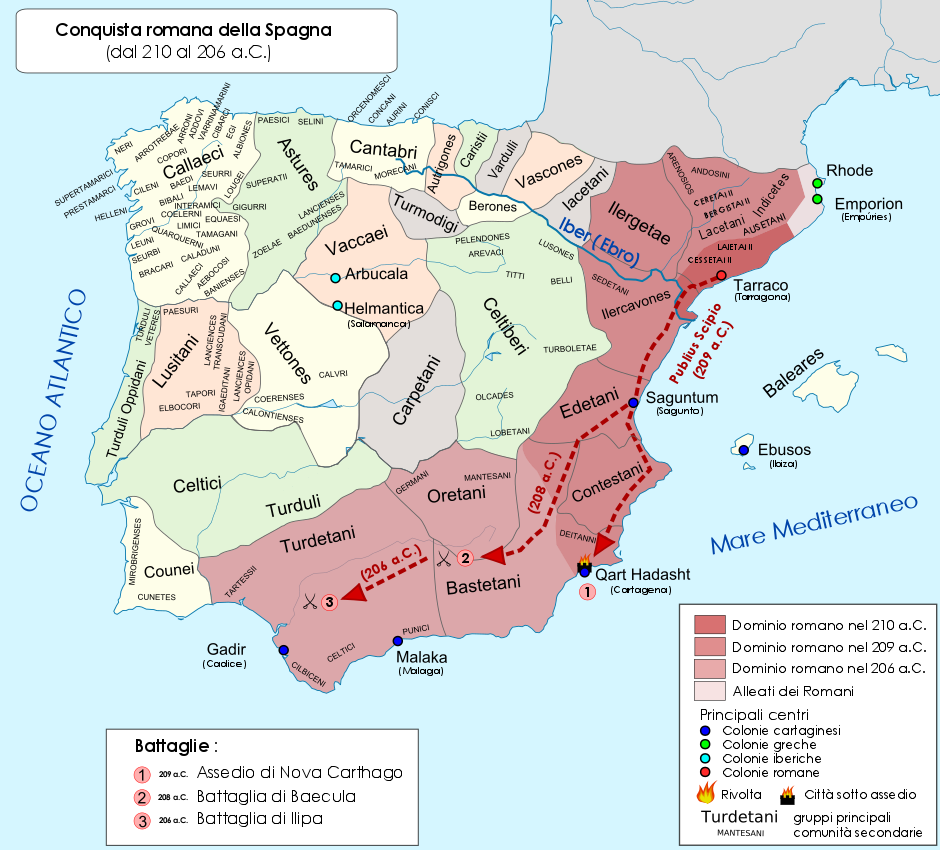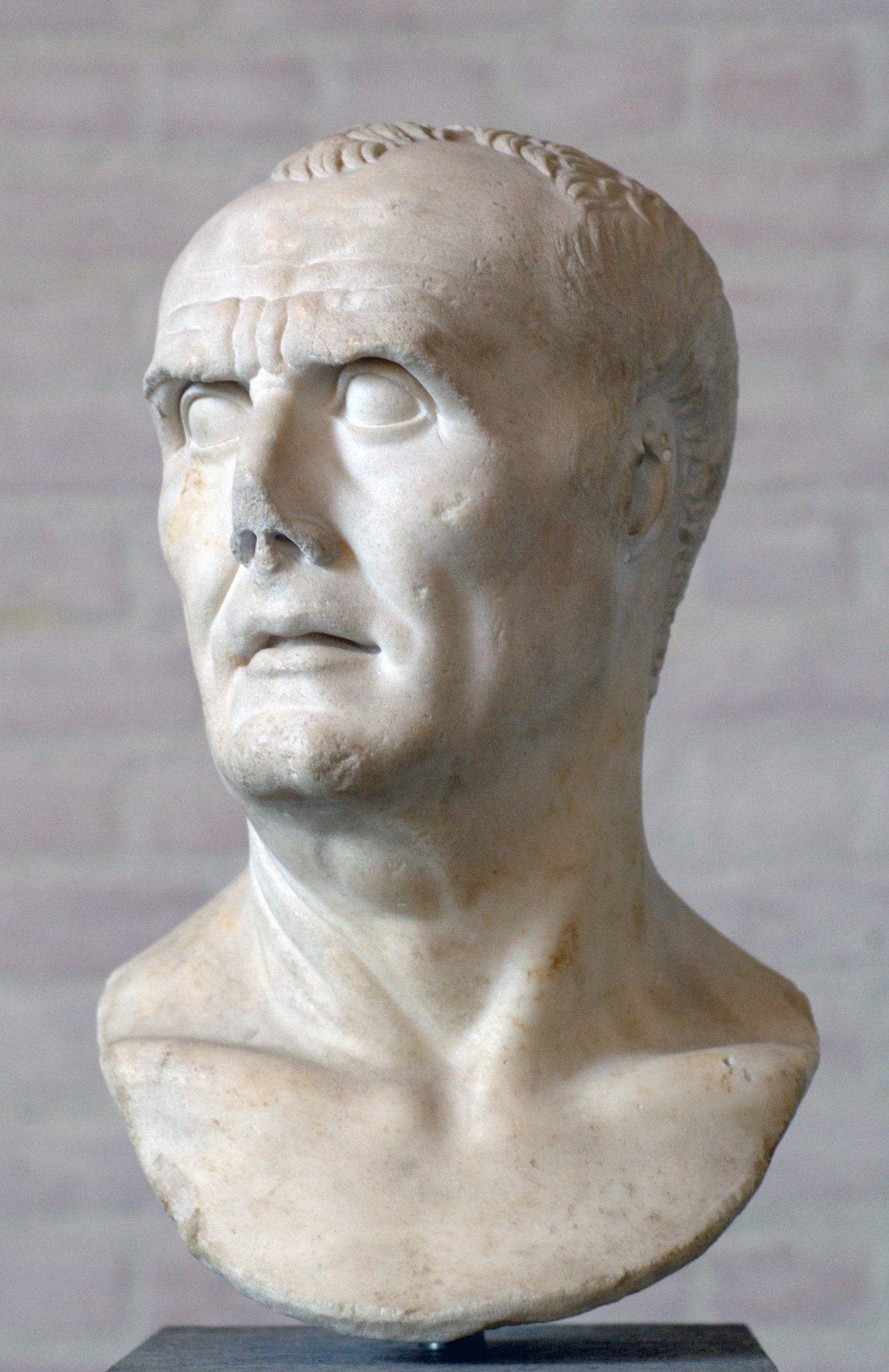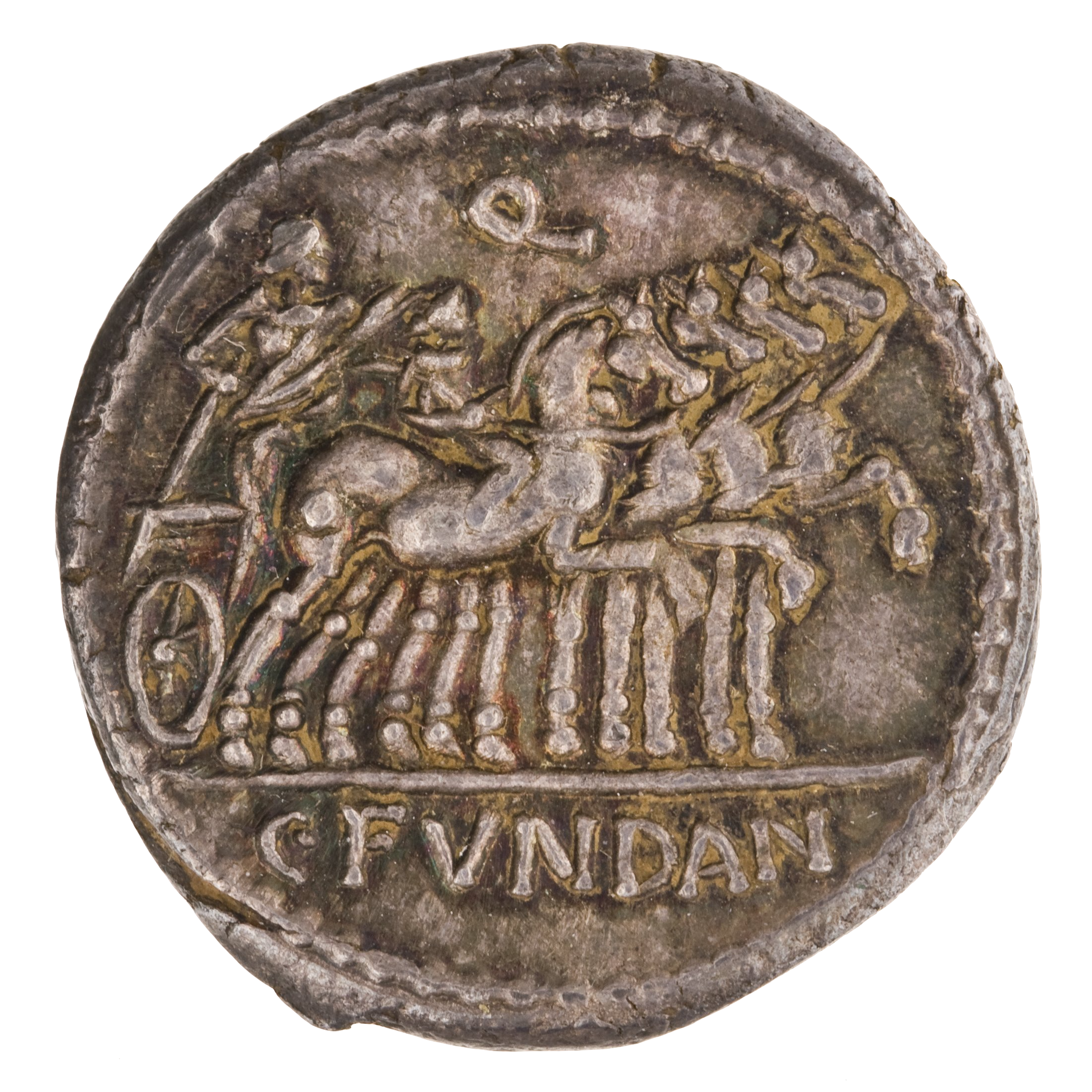|
Legatus
A legate (Latin: , ) was a high-ranking Roman military officer in the Roman army, equivalent to a high-ranking general officer of modern times. Initially used to delegate power, the term became formalised under Augustus as the officer in command of a Roman legion. From the times of the Roman Republic, legates received large shares of the military's rewards at the end of a successful campaign. This made the position a lucrative one, so it could often attract even distinguished consuls or other high-ranking political figures within Roman politics (e.g., the consul Lucius Julius Caesar volunteered late in the Gallic Wars as a legate under his first cousin, Gaius Julius Caesar). Diplomats and envoys sent by Rome were also given the title of legate. History Roman Republic The rank of legate existed as early as the Samnite Wars, but it was not until 190 BC that it started to be standardized, meant to better manage the higher numbers of soldiers the Second Punic War had forced t ... [...More Info...] [...Related Items...] OR: [Wikipedia] [Google] [Baidu] |
Roman Legion
The Roman legion (, ) was the largest military List of military legions, unit of the Roman army, composed of Roman citizenship, Roman citizens serving as legionary, legionaries. During the Roman Republic the manipular legion comprised 4,200 infantry and 300 cavalry. After the Marian reforms in 107 BC, the legions were formed of 5,200 men and were restructured around 10 cohorts, the first cohort being double strength. This structure persisted throughout the Principate and Roman Empire, middle Empire, before further changes in the fourth century resulted in new formations of around 1,000 men. Size The size of a typical legion varied throughout the history of ancient Rome, with complements ranging from 4,200 legionaries and 300 ''equites'' (drawn from the wealthier classes – in early Rome all troops provided their own equipment) in the Republic, to 5,500 in the Imperial period, when most legions were led by a Roman Imperial Legate. A legion had 4,800 Legionary, legionaries ( ... [...More Info...] [...Related Items...] OR: [Wikipedia] [Google] [Baidu] |
Roman Governor
A Roman governor was an official either elected or appointed to be the chief administrator of Roman law throughout one or more of the many Roman province, provinces constituting the Roman Empire. The generic term in Roman legal language was ''rector provinciae,'' regardless of the specific titles, which also reflects the province's intrinsic and strategic status, and corresponding differences in authority. By the time of the early Roman Empire, Empire, two types of provinces existed—Senatorial province, senatorial and Imperial province, imperial—and several types of governor would emerge. Only ''proconsuls'' and ''propraetors'' fell under the classification of promagistrate. Duties of the governor The governor was the province's chief judge. He had the sole right to impose capital punishment, and capital cases were normally tried before him. To appeal a governor's decision necessitated travelling to Rome and presenting one's case before either the ''Praetor#Praetor urbanus, ... [...More Info...] [...Related Items...] OR: [Wikipedia] [Google] [Baidu] |
Roman Army
The Roman army () served ancient Rome and the Roman people, enduring through the Roman Kingdom (753–509 BC), the Roman Republic (509–27 BC), and the Roman Empire (27 BC–AD 1453), including the Western Roman Empire (collapsed Fall of the Western Roman Empire, AD 476/480) and the Byzantine Empire, Eastern Roman Empire (collapsed Fall of Constantinople, AD 1453). It is thus a term that broadly spans approximately 2,206 years, during which the force underwent numerous permutations in Size of the Roman army, size, Military of ancient Rome, composition, Structural history of the Roman military, organization, Roman military equipment, equipment and Strategy of the Roman military, tactics, while conserving a core of lasting traditions. Early Roman army (c. 550 – c. 300 BC) Until , there was no "national" Roman army, but a series of clan-based war-bands which only coalesced into a united force in periods of serious external threat. Around 550 BC, during the period conventiona ... [...More Info...] [...Related Items...] OR: [Wikipedia] [Google] [Baidu] |
Roman Province
The Roman provinces (, pl. ) were the administrative regions of Ancient Rome outside Roman Italy that were controlled by the Romans under the Roman Republic and later the Roman Empire. Each province was ruled by a Roman appointed as Roman governor, governor. For centuries, it was the largest administrative unit of the foreign possessions of ancient Rome. With the administrative reform initiated by Diocletian, it became a third level administrative subdivision of the Roman Empire, or rather a subdivision of the Roman diocese, imperial dioceses (in turn subdivisions of the Praetorian prefecture, imperial prefectures). History A province was the basic and, until the Tetrarchy (from AD 293), the largest territorial and administrative unit of the empire's territorial possessions outside Roman Italy. During the republic and early empire, provinces were generally governed by politicians of Roman senate, senatorial rank, usually former Roman consul, consuls or former praetors. ... [...More Info...] [...Related Items...] OR: [Wikipedia] [Google] [Baidu] |
Lucius Julius Caesar (consul 64 BC)
Lucius Julius Caesar () was a Roman politician and senator who was consul in 64 BC. A supporter of his cousin, the Roman dictator Gaius Julius Caesar, Lucius was a key member of the senatorial coalition which strove to avoid civil war between the Senate and his nephew Mark Antony in the aftermath of Caesar's assassination in 44 BC. Early career A member of the patrician '' gens Julia'', Lucius Julius Caesar was the son of the homonymous consul of 90 BC and Fulvia. He began his political career serving as quaestor in Asia in 77 BC, probably under Terentius Varro. By 69 BC, Lucius had been elected augur, and by the end of 67 BC, he had served in the office of praetor. Lucius Caesar was then elected consul for 64 BC, serving alongside Gaius Marcius Figulus. During his consulship, senatorial decrees were passed which limited the number of attendants who could accompany candidates during election campaigns. Action was also taken that year against certain g ... [...More Info...] [...Related Items...] OR: [Wikipedia] [Google] [Baidu] |
Lucius Quinctius Flamininus
Lucius Quinctius Flamininus (died 170 BC) was a Roman politician and general who served as consul in 192 BC alongside Gnaeus Domitius Ahenobarbus. He was eventually expelled from the Senate by Cato the Elder. Early career and the Second Macedonian War A member of the patrician gens Quinctia, Lucius Quinctius Flamininus was the brother of Titus Quinctius Flamininus. He was elected curule aedile in 201 BC, and in 199 BC, he served as praetor urbanus. In the following year (198 BC), his praetorial imperium was prorogued by the Senate, initially to take on the task of allocating land in Italy for veterans who had served in Hispania. However, his brother Titus ensured that he was given a propraetoral command in charge of a fleet around Greece, and made responsible for securing the Italian coastal regions during the Second Macedonian War. Flamininus initially sailed to Corcyra, and having the fleet handed over to him by his predecessor Lucius Apustius near the island of Zama, he tra ... [...More Info...] [...Related Items...] OR: [Wikipedia] [Google] [Baidu] |
Titus Quinctius Flamininus
Titus Quinctius Flamininus (229 – 174 BC) was a Roman politician and general instrumental in the Roman conquest of Greece. Family background Flamininus belonged to the minor patrician ''gens'' Quinctia. The family had a glorious place in the early history of Rome, especially the famous hero Lucius Quinctius Cincinnatus, but it had somewhat lost its political influence by the middle of the fourth century BC. Flamininus' great grandfather Caeso Quinctius Claudus was still consul in 271, the last time a Quinctius is recorded as holding a curule office before 209. Lucius Quinctius, his grandfather, was '' flamen Dialis'' — the great priest of Jupiter — during the third quarter of the third century. The cognomen Flamininus borne by his descendants derives from this prestigious priesthood. Flamininus' great grandson later put an '' apex'', the head covering of the Flamen, as a symbol of his family on a denarius he minted. Flamininus' father — also named Titus — is n ... [...More Info...] [...Related Items...] OR: [Wikipedia] [Google] [Baidu] |
Scipio Africanus
Publius Cornelius Scipio Africanus (, , ; 236/235–) was a Roman general and statesman who was one of the main architects of Rome's victory against Ancient Carthage, Carthage in the Second Punic War. Often regarded as one of the greatest military commanders and strategists of all time, his greatest military achievement was the defeat of Hannibal at the Battle of Zama in 202 BC. This victory in Africa earned him the honorific epithet ''Africanus'', literally meaning 'the African', but meant to be understood as a conqueror of Africa (Roman province), Africa. Scipio's conquest of Carthaginian Iberia culminated in the Battle of Ilipa in 206 BC against Hannibal's brother Mago Barca. Although considered a hero by the Roman people, primarily for his victories against Carthage, Scipio had many opponents, especially Cato the Elder, who hated him deeply. In 187 BC, he was tried in a show trial alongside his brother for bribes they supposedly received from the Seleucid king Antiochus III ... [...More Info...] [...Related Items...] OR: [Wikipedia] [Google] [Baidu] |
Lucius Scipio Asiaticus
Lucius Cornelius Scipio Asiaticus (properly Asiagenes; 3rd century BC – after 183 BC) was a general and statesman of the Roman Republic. He was the son of Publius Cornelius Scipio and the younger brother of Scipio Africanus. He was elected consul in 190 BC, and later that year led (with his brother) the Roman forces to victory at the Battle of Magnesia. Although his career may be eclipsed by the shadow of his elder brother, Lucius' life is noteworthy in several respects. Family background Lucius belonged to the patrician ''gens'' Cornelia, one of the most important gentes of the Republic, which counted more consulships than any other. He was the son of Publius, the consul of 218 who died against the Carthaginians at the Battle of the Upper Baetis in 211, and Pomponia, the daughter of Manius Pomponius Matho, consul in 233. Lucius also had an elder brother, Publius, better known as Scipio Africanus, who was the leading man of his generation and the vanquisher of Hannibal a ... [...More Info...] [...Related Items...] OR: [Wikipedia] [Google] [Baidu] |
Roman–Seleucid War
The Roman–Seleucid war (192–188 BC), also called the Aetolian war, Antiochene war, Syrian war, and Syrian-Aetolian war was a military conflict between two coalitions, one led by the Roman Republic and the other led by the Seleucid Empire, Seleucid king Antiochus III the Great, Antiochus III. The fighting took place in modern-day southern mainland Greece, the Aegean Sea, and Anatolia, Asia Minor. The war was the consequence of a "Cold war (general term), cold war" between both powers, which had started in 196 BC. In this period, the Romans and the Seleucids attempted to settle spheres of influence by forging alliances with the small Greek city-states. Also important were the Romans and Seleucids' irreconcilable visions for the Aegean: the Romans saw Greece as their sphere of influence and Asia Minor as a buffer area while the Seleucids saw Asia Minor as a core part of their empire with Greece as the buffer zone. After the Aetolian League triggered a small war which ... [...More Info...] [...Related Items...] OR: [Wikipedia] [Google] [Baidu] |
Latin Language
Latin ( or ) is a classical language belonging to the Italic languages, Italic branch of the Indo-European languages. Latin was originally spoken by the Latins (Italic tribe), Latins in Latium (now known as Lazio), the lower Tiber area around Rome, Italy. Through the expansion of the Roman Republic, it became the dominant language in the Italian Peninsula and subsequently throughout the Roman Empire. It has greatly influenced many languages, Latin influence in English, including English, having contributed List of Latin words with English derivatives, many words to the English lexicon, particularly after the Christianity in Anglo-Saxon England, Christianization of the Anglo-Saxons and the Norman Conquest. Latin Root (linguistics), roots appear frequently in the technical vocabulary used by fields such as theology, List of Latin and Greek words commonly used in systematic names, the sciences, List of medical roots, suffixes and prefixes, medicine, and List of Latin legal terms ... [...More Info...] [...Related Items...] OR: [Wikipedia] [Google] [Baidu] |
Marian Reforms
The Marian reforms were putative changes to the composition and operation of the Roman army during the late Roman Republic usually attributed to Gaius Marius (a general who was consul in 107, 104–100, and 86 BC). The most important of these concerned the altering of the socio-economic background of the soldiery. Other changes were supposed to have included the introduction of the cohort; the institution of a single form of heavy infantry with uniform equipment; the universal adoption of the eagle standard; and the abolition of the citizen cavalry. It was commonly believed that Marius changed the soldiers' socio-economic background by allowing citizens without property to join the Roman army, a process called "proletarianisation". This was thought to have created a semi-professional class of soldiers motivated by land grants; these soldiers in turn became clients of their generals, who then used them to overthrow the republic. Belief in a comprehensive scheme of ref ... [...More Info...] [...Related Items...] OR: [Wikipedia] [Google] [Baidu] |








